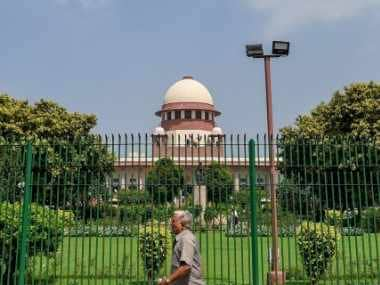New Delhi: The Supreme Court on Tuesday agreed to hear a petition seeking permission for Muslim women to enter mosques to offer prayers. [caption id=“attachment_6075511” align=“alignleft” width=“380”]  File image of the Supreme Court of India. PTI[/caption] A bench headed by Justice S A Bobde issued notice to the Centre and asked it to respond to the plea filed by a Pune-based couple. The bench told the counsel appearing for the petitioners that it will hear the matter because of the apex court’s judgment in the Sabarimala temple case. “The only reason we may hear you is because of our judgment in the Sabarimala temple case,” it said. On 28 September 2018, a five-judge constitution bench headed by then chief justice Dipak Misra, in its 4:1 verdict, had paved the way for entry of women of all ages into the Sabarimala temple in Kerala, saying the ban amounted to gender discrimination. In the current petition, the couple has sought the apex court’s direction to declare as “illegal” and “unconstitutional” the practice of prohibiting the entry of Muslim women into mosques to offer prayers. Referring to constitutional provisions, the petitioners have said there should not be any discrimination against any citizen of the country on the ground of religion, race, caste, sex and place of birth. They have added that a life of dignity and equality is the most sacrosanct fundamental right and a Muslim woman cannot be prohibited from entering a mosque. During the hearing, the bench sought to know from the petitioners’ counsel as to whether Muslim women were allowed to enter a mosque in foreign countries. The counsel informed the bench that Muslim women were allowed to enter a mosque at the holy Mecca and also in Canada. However, the bench asked the counsel whether the fundamental right to equality could be asserted against non-State actors. “Can you invoke Article 14 of the Constitution and claim equal treatment from another human being?,” it asked. The petitioners’ counsel told the court that the mosques in India were enjoying the benefits and grant extended to them by the State.
The Supreme Court bench told the counsel appearing for the petitioner that it will hear the matter because of the apex court’s judgment in the case involving Kerala’s Sabarimala temple
Advertisement
End of Article


)

)
)
)
)
)
)
)
)



